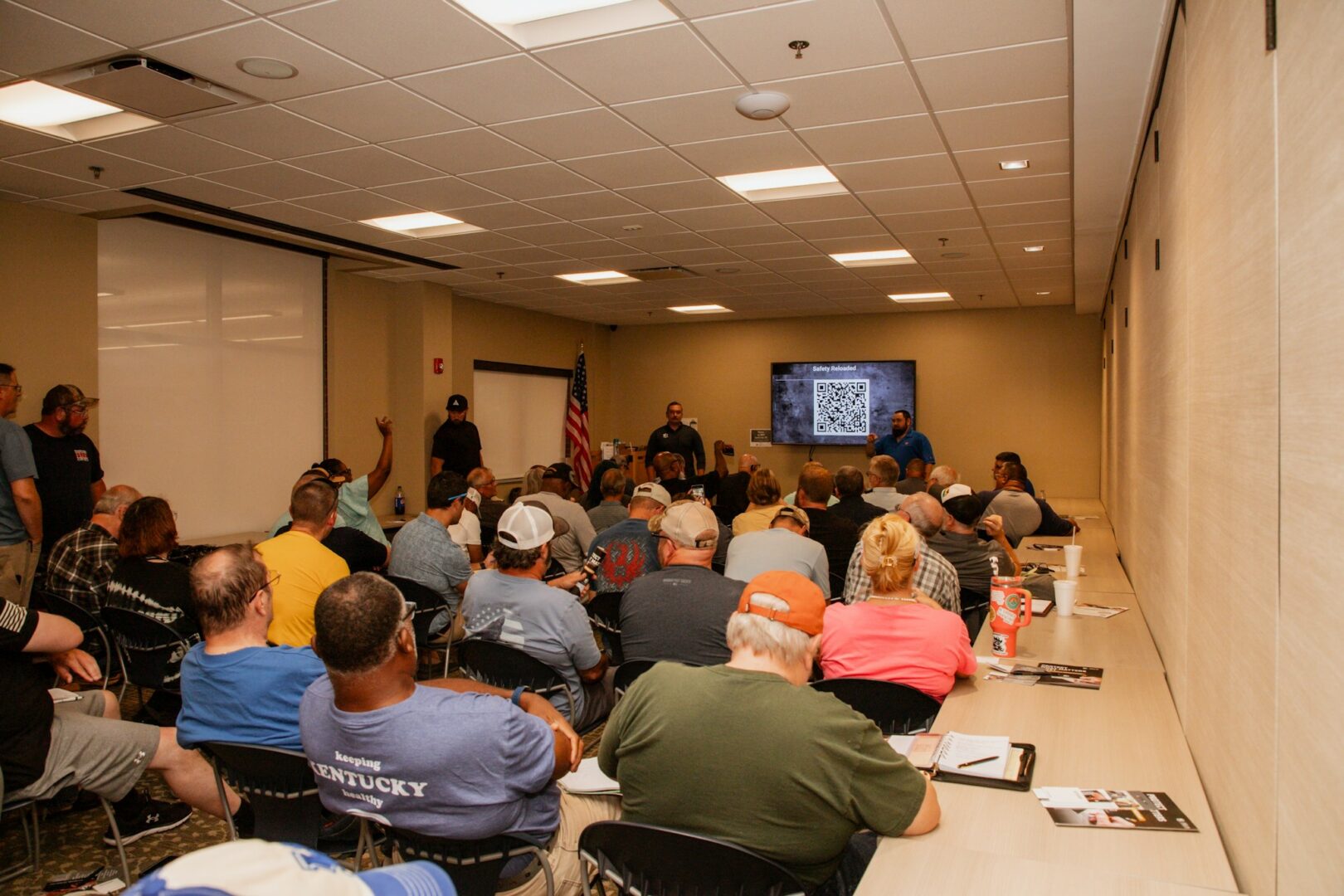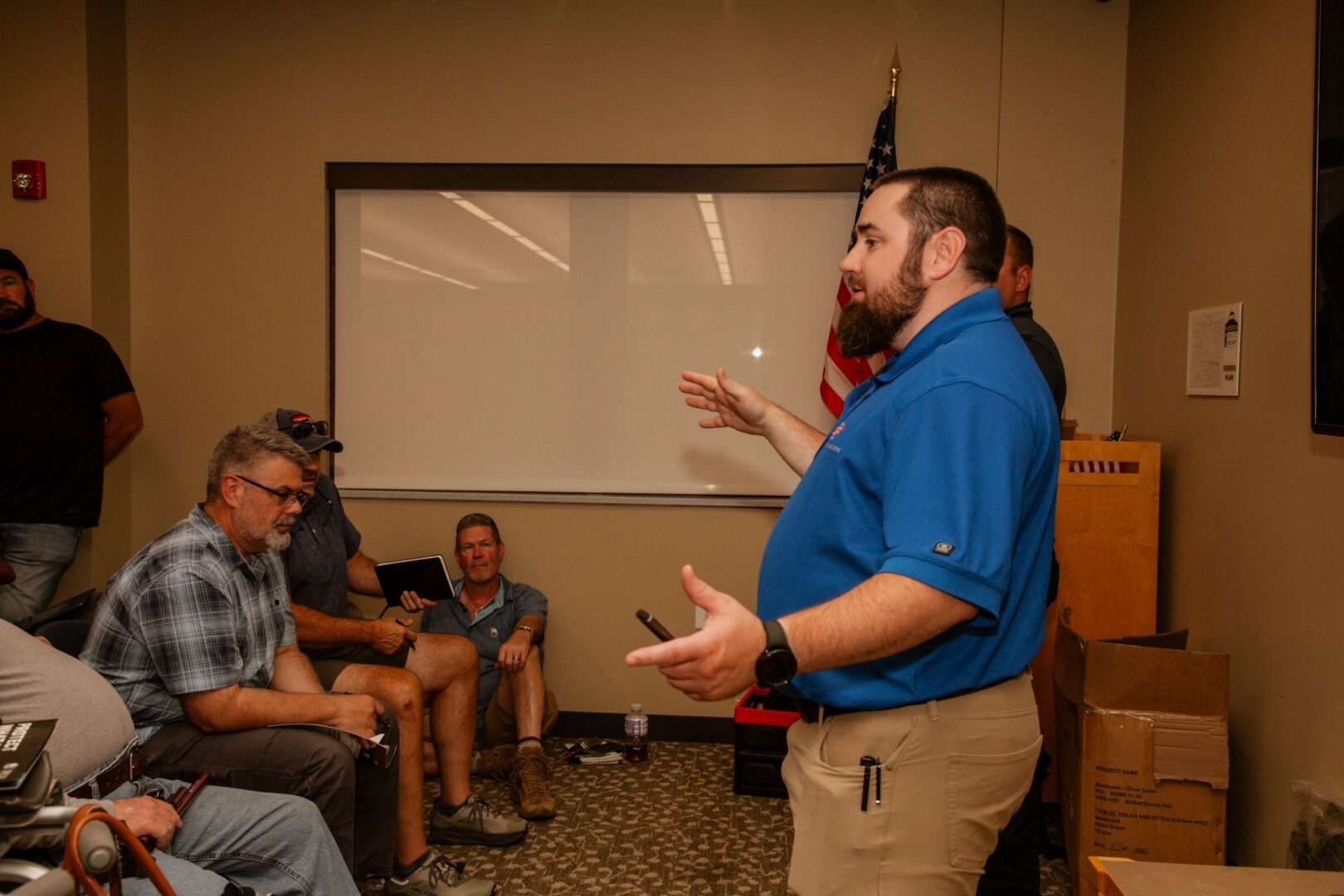Nicholas Eckert shared their story and experiences with us recently and you can find our conversation below.
Hi Nicholas, thank you for taking the time to reflect back on your journey with us. I think our readers are in for a real treat. There is so much we can all learn from each other and so thank you again for opening up with us. Let’s get into it: What are you most proud of building — that nobody sees?
I wouldn’t say nobody sees it, but what often goes unnoticed is the sheer amount of free training and community outreach we do. That’s what I’m most proud of. Every month, we host between four and ten free classes across our region, reaching hundreds of people. To my knowledge, no other organization in our space offers that level of accessible, no-cost safety education.
Sure, it helps us connect with new students and sometimes leads to paying clients—but that’s never been the goal. Even if it didn’t bring in a single new student, I’d still keep running those classes, and I encourage every franchisee to do the same.
Can you briefly introduce yourself and share what makes you or your brand unique?
I’m Dr. Nicholas Eckert, founder of Safety Reloaded, a training company that’s grown from a single classroom into a regional franchise network. What makes us unique is our focus on everyday people, not just law enforcement or security professionals, but families, individuals, and communities who want to feel more confident about their personal safety.
We’re known for keeping training accessible. That means everything from free community classes to advanced tactical programs, all taught in a way that’s practical, not intimidating.
Right now, I’m really excited about growing our network of franchisees. It’s been powerful to see others take our model into their own communities, creating safer neighborhoods while also building sustainable businesses. For me, it’s not just about teaching skills, it’s about creating a movement where safety education becomes part of everyday life.
Appreciate your sharing that. Let’s talk about your life, growing up and some of topics and learnings around that. Who taught you the most about work?
I’ve been fortunate to have a lot of great mentors over the years, people I still stay in touch with and lean on for advice. But whenever I get asked this question, my mind always goes back to one person: my former peer, Mitch.
We worked in a pretty toxic environment under a manager who believed in bullying as a leadership style. In the middle of all that, Mitch stood out. He led his team with this calm, steady approach, and when things got rough, he’d step in front of his people and say, “The buck stops here. Don’t yell at them. I’m responsible for this area.”
That moment stuck with me, it showed me what real leadership looks like: protecting your people, taking responsibility, and leading with character. To this day, I still admire him, and I’m grateful to call him a friend.
What did suffering teach you that success never could?
I wouldn’t necessarily call it suffering, though some failures have felt that way in the moment. But failure, more than success, has always been my greatest teacher. Success feels good, but it rarely forces you to change. Failure, on the other hand, gives you data. It shows you what doesn’t work and, if you’re willing to face it, points you toward what might.
I always think back to that Edison quote: “I have not failed. I’ve just found 10,000 ways that won’t work.” That mindset has been huge for me. When something doesn’t go right, I try not to see it as a crushing defeat, but as a lesson I can carry forward. Failure has a way of building resilience and perspective that success alone just can’t.
So a lot of these questions go deep, but if you are open to it, we’ve got a few more questions that we’d love to get your take on. How do you differentiate between fads and real foundational shifts?
That’s one of the toughest parts of my field. We’re talking about serious topics, emergency first aid, medical response, personal protection, in a world where anyone can post a video online and call themselves an expert. The challenge is that people don’t always realize when they’re watching satire, misinformation, or just someone sharing a dangerous anecdote as if it were fact.
For me, the filter is simple: I go back to the data and the people with real-world experience. If it’s something new I haven’t seen before, I’ll reach out to trusted experts in that specific niche to get their take. I put a lot more weight on those who’ve “been there, done that” or literally written the book, versus someone who just uploaded a flashy video.
That’s how I separate the noise from the signal, by making sure what I teach and stand behind is grounded in evidence, experience, and credibility, not just whatever’s trending online.
Okay, so before we go, let’s tackle one more area. What are you doing today that won’t pay off for 7–10 years?
With Safety Reloaded, I see everything we’re doing now as planting seeds for the future. The free classes, the community outreach, and the way we’ve made safety training accessible to everyday people, that’s not just about today. It’s about building a culture where people feel safer, more confident, and more connected because of the work we started.
Ten years from now, I don’t want success to be measured by how many franchises we’ve opened. I want people to say, “Safety Reloaded made a difference. They gave us knowledge we wouldn’t have had otherwise. They made safety something our whole community could be part of.”
That’s the real investment, building safer, more confident communities whose impact we may not see for years, but will last for generations.
Contact Info:
- Website: https://www.safetyreloaded.org/en-us/
- Instagram: https://www.instagram.com/safety_reloaded
- Linkedin: https://www.linkedin.com/company/safety-reloaded
- Facebook: https://www.facebook.com/safetyreloaded


so if you or someone you know deserves recognition please let us know here.




